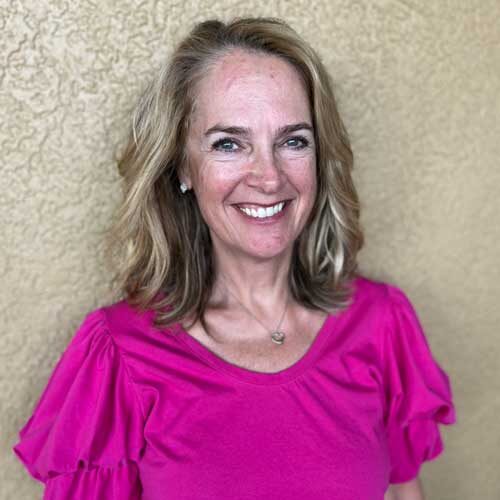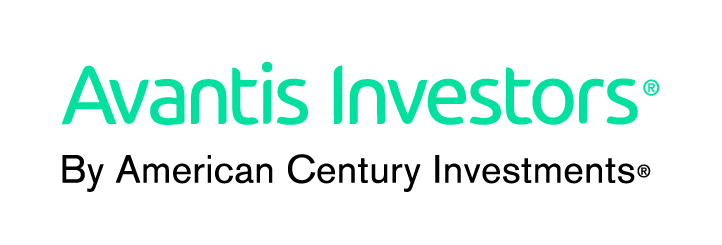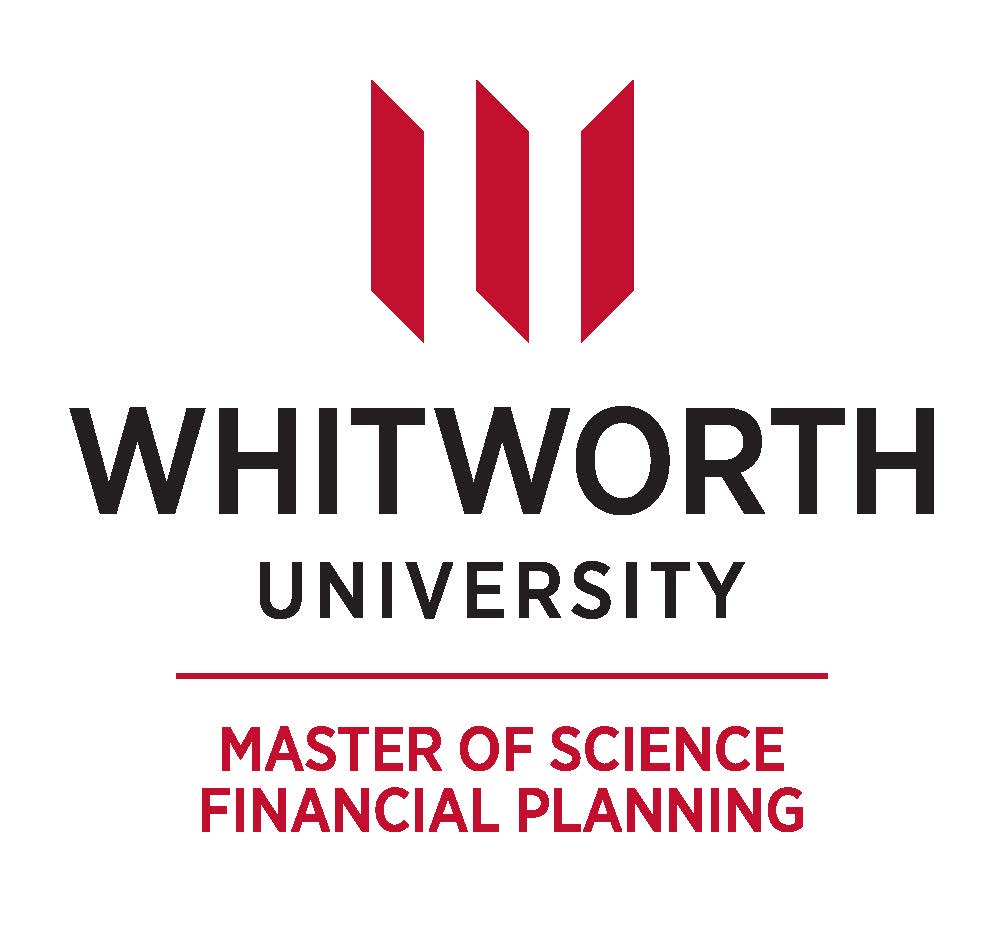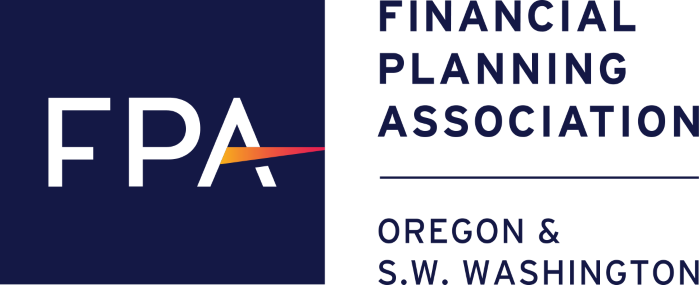|
2025 Spring Financial Forum
Wednesday, March 19, 2025, 8:00 AM - 5:00 PM PDT
Category: Events
|
||||||||||||||||||||||||||||||||||||
Schedule-at-a-glance |
|
| 8:15 am | Registration Opens & Continental Breakfast |
| 9:00 am - 9:15 am | Welcome & Opening Remarks |
| 9:15 am - 10:15 am | Insurance: An Often Overlooked Cornerstone of Wealth Management |
| 10:15 am - 10:30 am | Networking Break |
| 10:30 am - 11:30 am | 4 Strategies for a Smarter College Search |
| 11:30 am - 11:45 am | Networking Break |
| 11:45 am - 12:45 pm | Behavioral Finance and Financial Wellness |
| 12:45 pm - 1:30 pm | Lunch |
| 1:45 pm - 2:45 pm | Pro Bono Financial Planning Volunteer Training |
| 2:45 pm - 3:00 pm | Closing Remarks |
| 3:00 pm - 4:00 pm | Networking Happy Hour - 1 hosted drink ticket |
| *schedule is subject to change | |
Session & Speaker Details
9:15 am - 10:15 am
Insurance: An Overlooked Cornerstone of Wealth Management
Presented by Ed Lief, FSCP, AssuredPartners
This presentation, titled "Insurance: An Often Overlooked Cornerstone of Wealth Management," aims to make insurance as exciting and essential to financial planning as growing investments or saving for retirement. It highlights the different types of personal property and casualty insurance, the importance of liability insurance, and the benefits of using an insurance broker over an agent or call center. The presentation uses relatable examples and visuals to illustrate the key points, such as auto and home insurance claims, and emphasizes the significance of comprehensive insurance coverage versus simply opting for the cheapest option. Finally, it underscores the critical role of brokers in providing tailored solutions and accessing specialized carriers to protect high-net-worth individuals' assets.
Learning Objectives:
- Comprehensive Understanding: You now have a better understanding of the different types of personal lines of property and casualty insurance.
- Asset Protection: You've learned how the liability portions of these policies protect valuable assets from the unforeseen events.
- Broker vs. Agent: The advantages of working with an insurance broker -- who offers proactive policy reviews and access to specialized carriers -- over a traditional agent or call center are clear.
- Quality Over Coast: The importance of having the right insurance coverage rather than just the cheapest option cannot be overstated.
Meet your Speaker:
 A seasoned insurance agent, Ed has provided his clients with personalized insurance solutions since 1998. Focused on auto, home and life insurance, he understands everyone's situation is unique and should undergo a detailed review to ensure the proper coverage is in place. Ed helps his clients feel confident in choosing insurance options, shopping for the best rates across twenty different companies. He is married to Katherine, has a son named Greg and enjoys cooking, baking and traveling in his free time. His "15 minutes of fame" came in 2009 as a contestant on the Wheel of Fortune! Contact him today for a complimentary review of all your insurance needs.
A seasoned insurance agent, Ed has provided his clients with personalized insurance solutions since 1998. Focused on auto, home and life insurance, he understands everyone's situation is unique and should undergo a detailed review to ensure the proper coverage is in place. Ed helps his clients feel confident in choosing insurance options, shopping for the best rates across twenty different companies. He is married to Katherine, has a son named Greg and enjoys cooking, baking and traveling in his free time. His "15 minutes of fame" came in 2009 as a contestant on the Wheel of Fortune! Contact him today for a complimentary review of all your insurance needs.
*Granted 1 CEU with the CFP Board.
10:30 am - 11:30 am
4 Strategies for a Smarter College Search
Presented by Heidi King, College Inside Track
The college search continues to become more complex, making it harder for your clients to identify right fit schools. Challenges include:
- Admission trends and how colleges admit students is changing
- Testing - some require it now and some don't - what path makes sense?
- The number of schools on the “more selective” list continues to grow
- Substantial changes to the FAFSA, financial aid and the cost of college continues to increase making college more expensive for many families
- Finding right-fit schools and applying successfully
Learn more about these changes, and new strategies for the best opportunity to be admitted and maximize scholarships and financial aid.
Learning Objectives:
- Understand why admission policies have changes and how admission rates have been impacted at certain colleges.
- Learn about the recent changes to standardized testing and how they will impact families.
- Gain new strategies for advising parents and grandparents based on recent college financial aid update
Meet your Speaker:
 We are excited to partner with Heidi King from College Inside Track. Heidi speaks nationally about late-state college planning and works closely with us a go-to resource.
We are excited to partner with Heidi King from College Inside Track. Heidi speaks nationally about late-state college planning and works closely with us a go-to resource.
A college education is often the 2nd largest purchase a family will make other than their home and a milestone event that clients care deeply about. Late-state college planning is a value-add for client relationships. A knowledge base that advisors can leverage by helping parents - and grandparents - think more strategically, because so much has changed quickly.
Heidi has contributed to Yahoo!Finance as a subject-matter expert in college planning and was a featured speaker at Morningstar World on the college process.
She also is uniquely qualified to help us, as she recently went through this with her two sons.
*Granted 1 CEU with the CFP Board.
11:45 am - 12:45 pm
Behavioral Finance and Financial Wellness
Presented by Dr. Robin Henager Greene, MBA, Whitworth University
This presentation will outline research in the field of financial literacy and focuses on financial education and financial behaviors. These concepts are analyzed by age group and level of education. In addition, financial wellness is discussed in the context of student loans for college graduates. In this, the theory of Human Capital is applied to determine whether college is still a good investment given students’ borrowing for college.
Learning Objectives:
- What is the difference between crystallized intelligence and fluid intelligence?
- The research presented today analyzed long-term financial behaviors separately from short-term financial behavior.
- The research also found that confidence in one's ability to manage finances had a larger impact on the age group studied,
- Student loan impact on financial wellness of college graduates
- Main producers of human capital
Meet your Speaker:
 Dr. Robin Henager is an award-winning researcher and has taught at Whitworth University since 2014. She has a Ph.D. from the University of Georgia in Family Financial Planning, Housing, and Consumer Economics, an MBA from Brenau University, and a BA in Economics and International Affairs from Eastern Washington University.
Dr. Robin Henager is an award-winning researcher and has taught at Whitworth University since 2014. She has a Ph.D. from the University of Georgia in Family Financial Planning, Housing, and Consumer Economics, an MBA from Brenau University, and a BA in Economics and International Affairs from Eastern Washington University.
Robin brings experience that combines academics with corporate, non-profit, and ministry work. After spending several years as a financial analyst and forecaster at Lockheed Martin, she served in ministry at Christian Financial Concepts (with Larry Burkett) as the Director of Global Strategic Research.
Her expertise and passion are in the areas of personal financial planning, consumer decision-making, and microeconomics. Her research focuses on financial literacy, financial education, and financial behaviors that may be impacted by levels of financial literacy. Recent research also includes the relationship between student loans and financial wellness.
Dr. Henager currently teaches a very popular personal finance course at Whitworth for graduating seniors called Money Skills for Life After College. It focuses on topics students need to know when they get their first job (retirement and employee benefits), buy their first car, and among other things, manage any student debt they may have.
*Granted 1 CEU with the CFP Board.
1:45 pm - 2:45 pm
Pro Bono Financial Planning Volunteer Training
Presented by Scott Malbasa, CFP, J.D., Empirical Wealth Management
The session will have three parts with the goal being to train volunteers to be able to deliver pro-bono financial planning: Part 1 discusses what Pro Bono financial planning is and how it differs from non-pro bono planning; Part 2 explains ways advisors can get involved; and Part 3 provides specifics who advisors will be helping and how best to help them.
Learning Objectives:
- Understand pro bono financial planning
- Understand to whom and how to deliver pro bono financial planning
- Understand how to connect with people in need of pro bono financial planning
Meet your Speaker:
 Scott brings over nine years of experience as a financial advisor, specializing in designing and implementing financial strategies that align with clients' ambitions and aspirations. His mantra, “don’t default to the default,” underscores his commitment to making informed, intentional decisions in financial planning. Scott was also a practicing attorney prior to entering into finance – solidifying his client-focused approach. Scott's goal is to deeply understand clients' objectives and facilitate their realization. Scott lives in Portland with his wife and two children.
Scott brings over nine years of experience as a financial advisor, specializing in designing and implementing financial strategies that align with clients' ambitions and aspirations. His mantra, “don’t default to the default,” underscores his commitment to making informed, intentional decisions in financial planning. Scott was also a practicing attorney prior to entering into finance – solidifying his client-focused approach. Scott's goal is to deeply understand clients' objectives and facilitate their realization. Scott lives in Portland with his wife and two children.
*Granted 1 CEU with the CFP Board and Oregon Insurance Commission.
Thank you to our Sponsors!
Platinum Sponsors
 |
 |
|
Ryland Puzzitiello |
Kim Dodge |
Gold Sponsors
 |
 |
| Jeff Cornell Phone: 213-992-9009 Email: [email protected] |
Tess Tyson Phone: 509-777-4209 Email: [email protected] |
s
Silver Sponsor
 |
| Jeff Walters Phone: 503-984-2030 Email: [email protected] |

 Prev Month
Prev Month View Month
View Month Search
Search Go to Month
Go to Month Next Month
Next Month
 Export Event
Export Event